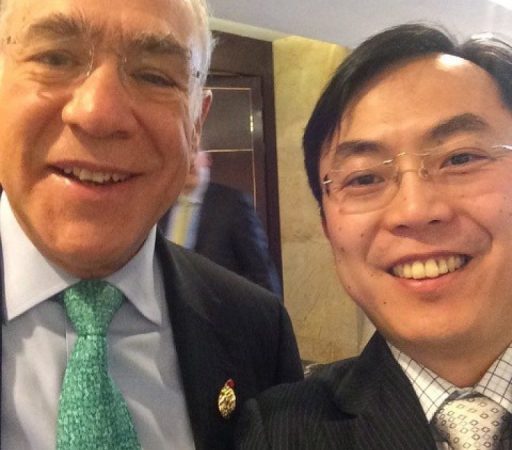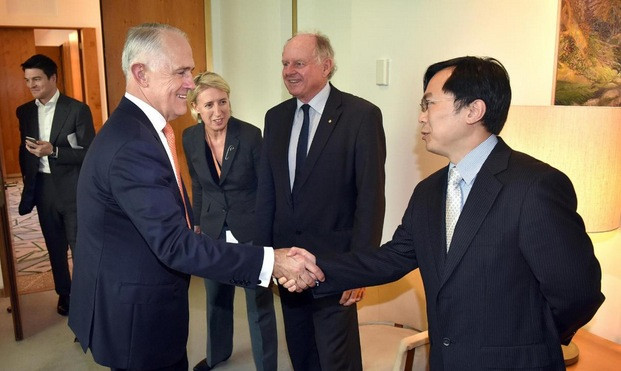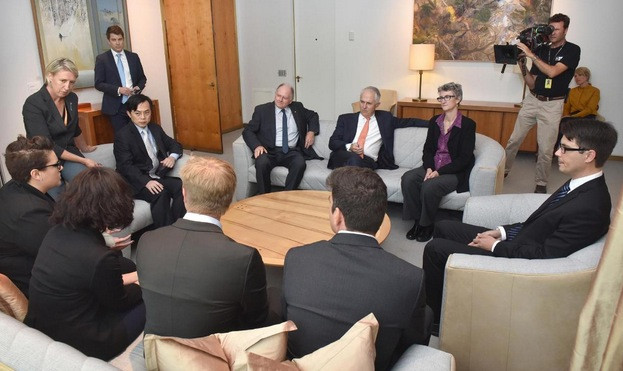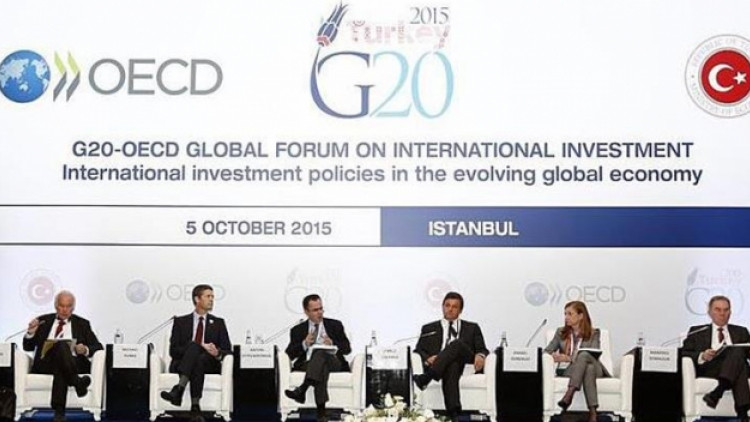
Often referred to as the rich countries club the Paris based OECD has in our view at eNotus Inc been a well informed and disciplined body providing essential information to the global community of nations well beyond its core economic competencies. The many fields of concern that it’s well balanced staff and leadership provide are among the best available research into these topics.
Although today we have among our staff and advisors experts from diverse backgrounds at the OECD we consider these people among our best assets guiding our own work on subjects ranging from trust in business to the new demands created by digital economy and rapid emergence of Artificial Intelligence and its potential impacts on the future of work and the current jobs and educational dilemmas affecting the majority of countries.
The OECD through its various affiliated bodies such as the Business and Industry Advisory Committee ( BIAC) shown a level headed and informed stance towards new technologies and social movements sometimes even providing thought leadership in fields like SMEs and the Global Value Chains.
A lot of criticism has been directed at the UN and other global agencies over recent years and there are even current threats to with holdfunding, however the independence of these organizations is essential to an effective international community and the OECD is one that demonstrates its value through the quality and consistency of its work.
The OECD’s core values
- Objective: Our analyses and recommendations are independent and evidence-based.
- Open: We encourage debate and a shared understanding of critical global issues.
- Bold: We dare to challenge conventional wisdom starting with our own.
- Pioneering: We identify and address emerging and long term challenges.
- Ethical: Our credibility is built on trust, integrity and transparency.
Song meets PM at Canberra science event

RMIT computer scientist Dr Andy Song meets Prime Minister Malcolm Turnbull at Science meets Parliament 2016. Photo: Mark Graham, Science meets Parliament 2016.

Song was one of seven scientists invited to discuss their research with the Prime Minister. Photo: Mark Graham, Science meets Parliament 2016.
21 Mar 2016
It’s not every day that you have your work praised by the Prime Minister in person, but Dr Andy Song found himself in just that situation during Science meets Parliament 2016 in Canberra.
Science meets Parliament (SmP) is an annual event that brings together over 200 scientists from all over Australia for face-to-face meetings with parliamentarians and other officials in the nation’s capital.
A Senior Lecturer from RMIT’s School of Science, Song was the university’s sole representative at the event held earlier this month, yet was specially selected as one of only seven scientists to meet the Prime Minister, Malcolm Turnbull.
“After a round of rather formal introduction and greeting, we sat down and introduced our research one by one,” he said.
“Malcolm asked questions to almost everyone and, from memory, there were two scientists working on astronomy and gravitational waves, two biologists and two medical researchers, but I was the only one from computer science.”
SmP is organised by Science and Technology Australia as an opportunity for scientists to experience life on Capital Hill and discuss their research and future projects with political leaders, but Song didn’t expect to meet the most important leader of them all.
“It was slightly surreal, but an interesting experience, and of course a great opportunity,” he said.
Song was invited to SmP after being recommended to Science Technology Australia by CORE, the Computing Research and Education Association of Australasia, who recommended only four researchers in total and funded the whole trip.
“I introduced my work as ‘Artificial Intelligence for Industry Applications’ and described a few projects that we have been working on, including on road safety, warehouse optimisation and business trust analysis.
“He listened quite carefully, said ‘well done,’ and then reiterated the importance of connecting science innovation with industry, ‘because that is something that we don’t do well’, which was one of the main topics in the whole event.”
As well as listening to the maiden speech of Australia’s Chief Scientist, Dr Alan Finkel AO, Song met a number of other politicians and influential industry representatives, including John Brumby, Sean Edwards and Kim Carr, among others.
This was the 16th annual national gathering of selected science and technology researchers and included a two-day program of professional development and networking, aimed at helping scientists better communicate their science to the media, policymakers andparliamentarians.
Source – Story: Dan Walder
BIAC B20 Event : Financing SMEs in Global Markets
However, SMEs – which account for about 60 to 70 percent of employment and over 50 percent of value-added in OECD countries – have struggled to access the financing they require to participate in and across world markets, as banks have deleveraged to meet new regulatory requirements
As our economies endure the slowest post-crisis global investment recovery since the early 1970s, there is a pressing need to unlock growth, investment and jobs. More must be done to enable businesses to serve their clients through global value chains (GVCs), which form the centerpiece of world trade and investment, and thereby enhance companies’ competitiveness, productivity, and propensity to invest.
However, SMEs – which account for about 60 to 70 percent of employment and over 50 percent of value-added in OECD countries – have struggled to access the financing they require to participate in and across world markets, as banks have deleveraged to meet new regulatory requirements.
Following the event, BIAC and B20 Turkey released a publication to convey key priorities to the G20 agenda in 2015. It presents a compilation of chapters by prominent thinkers on the financing of SMEs in GVCs, and draws upon the discussions held at the special event held on 4 June. The final chapter of the publication presents three overarching recommendations to G20 Leaders:
- Focus on coordination, consultation and impact assessment
- Raise SME access to finance and skills through an integrated approach
- Maximize the sharing of information through digital platforms
The publication is intended to serve as a key point of reference in preparing the G20 Leaders’ Summit Communiqué in 2015.
For more information, please see here: https://biac.org/biac-b20-event-business-access-to-global-value-chains-and-financing-smes/
BIAC and B20 give appreciation to the following co-sponsors of the event and report: Lloyds Banking Group, Toronto-Dominion Bank Group, the Association of Chartered Certified Accountants (ACCA), the SME Finance Forum, and Willis Ltd.
Turkey’s G20 proposes new business initiative

Reymond Voutier, head of the Washington-based Enotus think-tank which has helped to develop the initiative, told Anadolu Agency: “Turkey has nurtured a new initiative which could have a significant effect on the global economy.”
“One of the greatest challenges for the G20 this year will be working to restore trust in business,” added Selim Seval, another architect of the initiative and head of the Dun&Bradstreet consultancy in Istanbul.
“Trust is needed to increase growth and restore jobs,” he told Anadolu Agency in an interview on Monday.
The proposal is expected to be among those put to the G20 Summit meeting in Antalya, Turkey on Nov. 14. It would then be taken up by the China presidency of the organization which will succeed that of Turkey at the end of the year, according to Philippe Montigny, head of the ETHIC Intelligence Certification Committee, which certifies compliance programs – Montigny has also worked on the initiative.
Montigny told Anadolu Agency: “The purpose of the initiative is to encourage companies to make proposals on or to communicate the details of initiatives with which they have had success in fostering confidence. These are made irrespective of the type of activity or sector of the business.”
“For example, the ETHIC Intelligence certification process that we have designed allows companies to communicate in a credible way not only on their commitment to doing business with integrity but also on the means deployed to prevent corruption.”
The initiative is connected to one of the priorities of the Turkish G20, which is the support and development of small and medium-sized businesses (SMEs) across the globe. On May 27, Turkey launched the Small Business Forum in Istanbul, which will also take up this issue.
As Montigny pointed out, one of the great difficulties faced by small businesses is establishing trust with big corporations in order to join their global value chain. But big companies and small ones are very different kinds of animals, and getting them to communicate is a challenge.
“To the degree that the objective of the initiative is to strengthen relationships of trust between business, government and civil society, the potential for positive impact on small business is significant,” Montigny pointed out.
As part of the initiative, Voutier’s Enotus is developing an online platform which will make it easier for small and large businesses to connect, and achieve trust, wherever in the world they may be located.
As the initiative continues to develop in the G20, further projects and ways of implementing them will no doubt be added to the initiative.
“Trust became a major issue after the global financial crisis in 2008. Thanks to new initiatives at the G20, a clear direction has begun emerging throughout the international community to find ways of building trust among businesses,” commented Brook Horowitz, CEO of the International Business Leaders’ Forum, an NGO dedicated to promoting responsible business practice.
Source: TRT WORLD Nov 4, 2015
Turkish G20 proposes initiative on trust for business

Reymond Voutier, head of the Washington-based Enotus think-tank which has helped to develop the initiative, told Anadolu Agency: “Turkey has nurtured a new initiative which could have a significant effect on the global economy.”
One of the greatest challenges for the G20 this year will be working to restore trust in business,” added Selim Seval, head of the Dun & Bradstreet consultancy in Istanbul, and another architect of the initiative.
Trust is needed to increase growth and restore jobs,” he told Anadolu Agency in an interview on Monday.
The proposal is expected to be among those put to the G20 Summit meeting in Antalya, Turkey on Nov. 14. It would then be taken up by the China presidency of the organization which will succeed that of Turkey at the end of the year, according to Philippe Montigny, head of the ETHIC Intelligence Certification Committee, which certifies compliance programs – Montigny has also worked on the initiative.
Montigny told Anadolu Agency: “The purpose of the initiative is to encourage companies to make proposals on or to communicate the details of initiatives with which they have had success in fostering confidence. These are made irrespective of the type of activity or sector of the business.”
For example, the ETHIC Intelligence certification process that we have designed allows companies to communicate in a credible way not only on their commitment to doing business with integrity but also on the means deployed to prevent corruption.”
The initiative is connected to one of the priorities of the Turkish G20, which is the support and development of small and medium-sized businesses (SMEs) across the globe. On May 27, Turkey launched the Small Business Forum in Istanbul, which will also take up this issue.
As Montigny pointed out, one of the great difficulties faced by small businesses is establishing trust with big corporations in order to join their global value chain. But big companies and small ones are very different kinds of animals, and getting them to communicate is a challenge.
Source: Reported by: ‘Customs Today Report November 4, 2015’
Turkish B20 Proposes İnitiative On Trust For Business
“Turkey has nurtured a new initiative which could have a significant effect on the global economy”: Expert.
Reymond Voutier, head of the Washington-based Enotus think-tank which has helped to develop the initiative, told Anadolu Agency: “Turkey has nurtured a new initiative which could have a significant effect on the global economy.”
“One of the greatest challenges for the G20 this year will be working to restore trust in business,” added Selim Seval, head of the Dun & Bradstreet consultancy in Istanbul, and another architect of the initiative.
“Trust is needed to increase growth and restore jobs,” he told Anadolu Agency in an interview on Monday.
The proposal is expected to be among those put to the G20 Summit meeting in Antalya, Turkey on Nov. 14. It would then be taken up by the China presidency of the organization which will succeed that of Turkey at the end of the year, according to Philippe Montigny, head of the ETHIC Intelligence Certification Committee, which certifies compliance programs – Montigny has also worked on the initiative.
Montigny told Anadolu Agency: “The purpose of the initiative is to encourage companies to make proposals on or to communicate the details of initiatives with which they have had success in fostering confidence. These are made irrespective of the type of activity or sector of the business.”
“For example, the ETHIC Intelligence certification process that we have designed allows companies to communicate in a credible way not only on their commitment to doing business with integrity but also on the means deployed to prevent corruption.”
The initiative is connected to one of the priorities of the Turkish G20, which is the support and development of small and medium-sized businesses (SMEs) across the globe. On May 27, Turkey launched the Small Business Forum in Istanbul, which will also take up this issue.
As Montigny pointed out, one of the great difficulties faced by small businesses is establishing trust with big corporations in order to join their global value chain. But big companies and small ones are very different kinds of animals, and getting them to communicate is a challenge.
“To the degree that the objective of the initiative is to strengthen relationships of trust between business, government and civil society, the potential for positive impact on small business is significant,” Montigny pointed out.
As part of the initiative, Voutier’s Enotus is developing an online platform which will make it easier for small and large businesses to connect, and achieve trust, wherever in the world they may be located.
As the initiative continues to develop in the G20, further projects and ways of implementing them will no doubt be added to the initiative.
“Trust became a major issue after the global financial crisis in 2008. Thanks to new initiatives at the G20, a clear direction has begun emerging throughout the international community to find ways of building trust among businesses,” commented Brook Horowitz, CEO of the International Business Leaders’ Forum, an NGO dedicated to promoting responsible business practice. – Ankara
